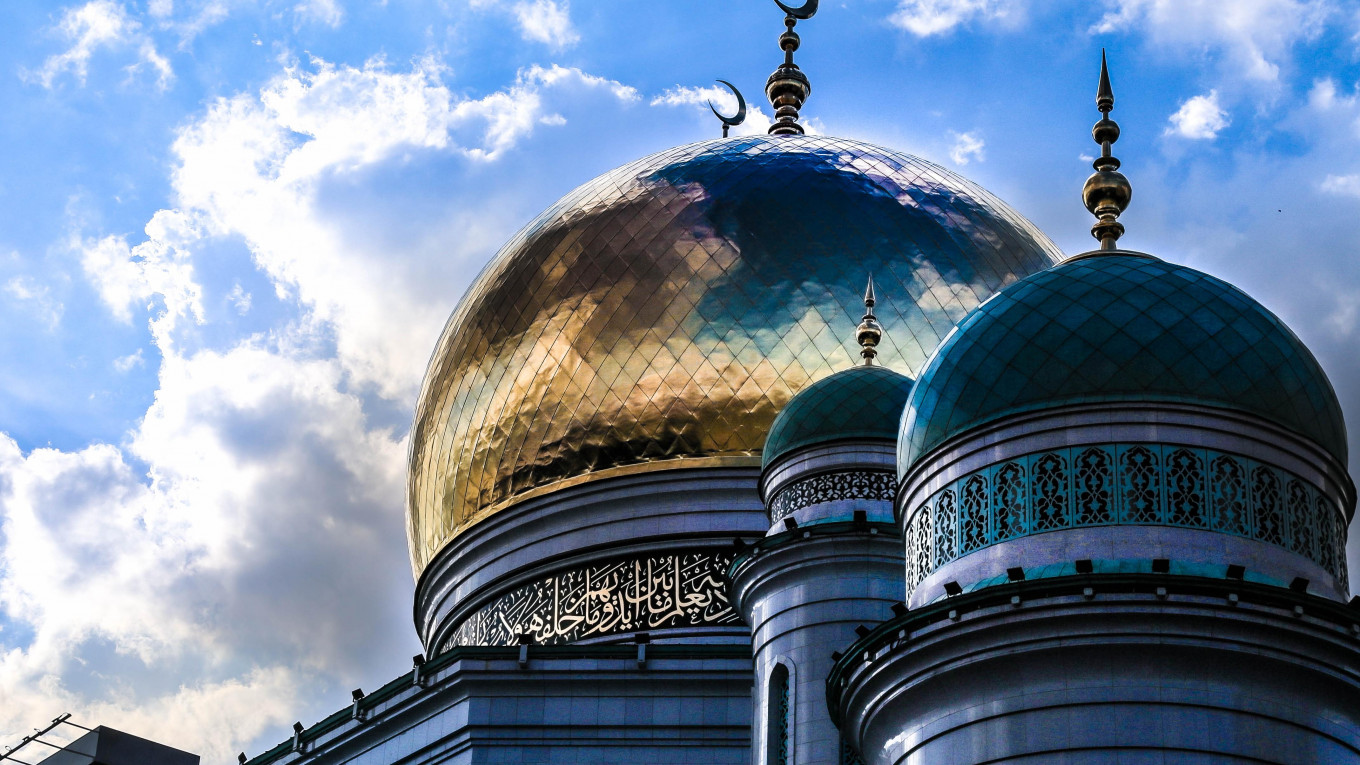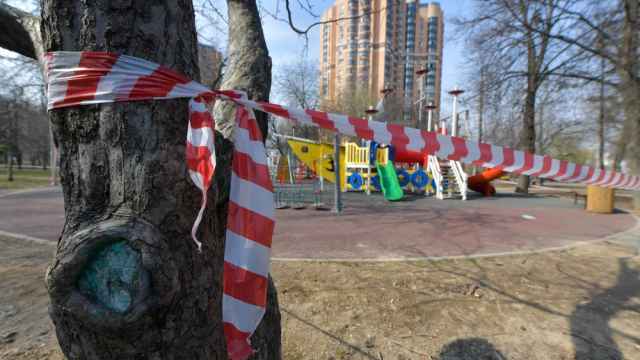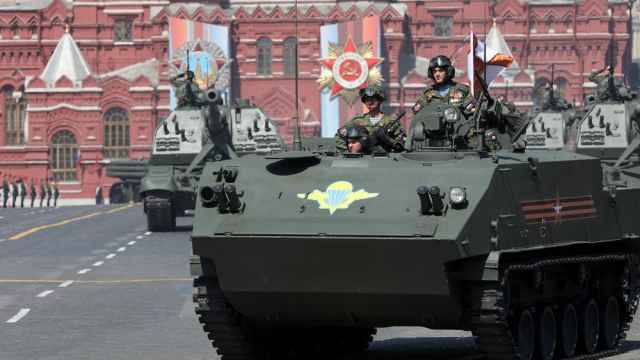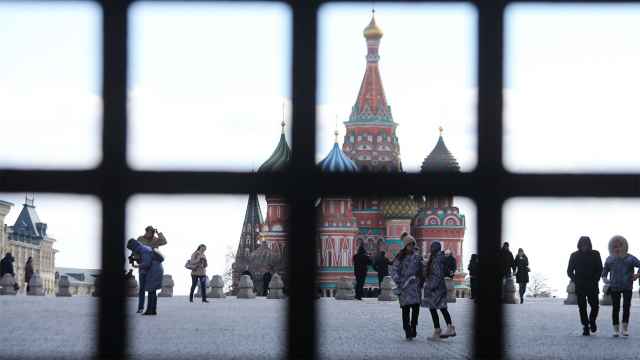On Tuesday, July 5, Ramil Tokobekov awoke at 3 a.m. so he could travel across Moscow to reach the city's Cathedral Mosque in time for 5 a.m. prayers.
Having moved from Kyrgyzstan three months ago, it would be the first time the 25-year-old metro worker celebrated the end of Ramadan in Moscow, and he wanted to do it right. The Eid al-Fitr holiday, after all, is one of the most important dates in the Muslim calendar.
Tokobekov initially searched for a mosque closer to home. But, as his friends explained, there were few good options, and of them the central mosque, the largest in Europe, was probably best.
The Russian capital may be home to almost two million Muslims — a greater number than any European city aside from Istanbul — but there are only four mosques serving the population.
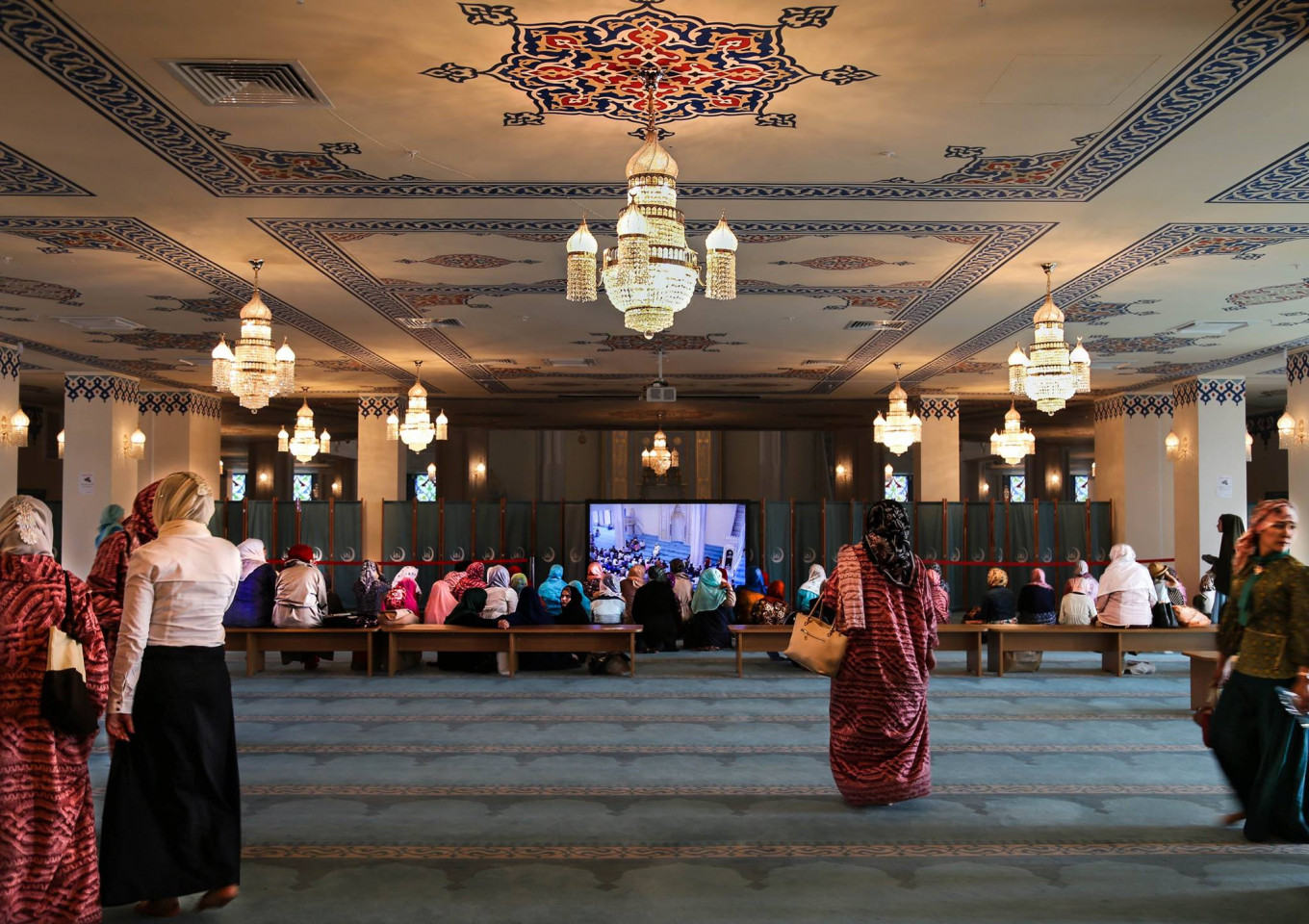
Street Prayers
The opening of the 10,000 capacity glittering Cathedral Mosque on Prospekt Mira last year was welcomed by Moscow's Muslim community. But many of the city's Muslims, who make up the fastest growing and most ethnically diverse group in the city, have made clear they would prefer to worship in local mosques, rather than travel long distances across the city.
"I have the energy to do that because I am young, but others do not," says Tokobekov.
Every effort to persuade Moscow's authorities to build more mosques has been rejected. Consequently, Moscow's Muslims are forced to pray outside in the streets, no matter the weather, as a result of the lack of space. "We have up to 30,000 people praying outside, even during our bitter winters," says Albir Khrganov, an activist who has lobbied for the construction of more mosques in the Russian capital.
This is most visible during Friday prayers, when hundreds of Muslim
men flood Bolshaya Tatarskaya Ulitsa in Moscow's historic center
carrying prayer mats. Passing through metal detectors guarded by dozens
of riot police officers, they line up within security fences. Traffic is
halted and loudspeakers carry an imam's prayers down the narrow street.
Non-Muslim shop owners watch the crowd struggling to fit within
the designated area in the heat outside. Only a tiny fraction of the men
praying in the street would be able to fit inside Moscow's nearby Old
Mosque, which can barely be seen through the crowd.
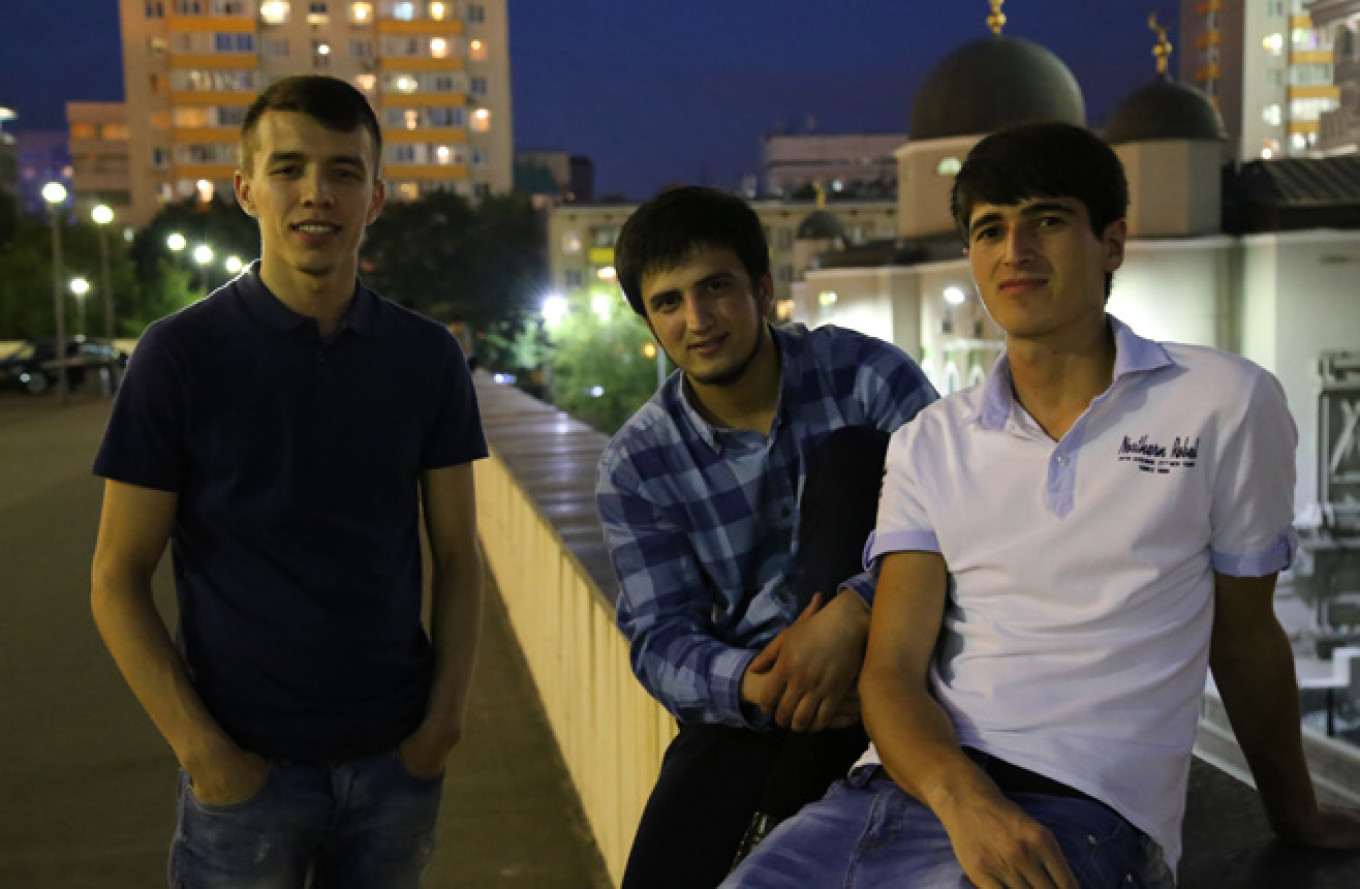
Electoral Weapon
In the late 2000s, Moscow's Muslims had more reason for optimism. In 2009, the city's mayor Yury Luzhkov supported an idea put forward by Russia's Muslim Council to build an additional six mosques in Moscow to cater for the city's growing Muslim population. Authorities assumed it was safer to provide new mosques than allow more underground prayer rooms, which can turn into sources of radicalization, to flourish. "It is a form of control," agrees Alexei Malashenko, a religion analyst who has long advocated for the city to start building mosques.
When current mayor Sergei Sobyanin replaced Luzhkov in 2010, he initially went along with these plans. But none of these projects ever became a reality. One by one, the construction of the mosques was dropped following protests of angry residents throughout the city.
In September 2010, locals collected 10,000 signatures for a petition against building a mosque in southeast Moscow's Tekstilshchiki, one of the city's most affordable districts and home to a large number of migrants. Five months later, the project was dropped. In 2012, authorities cancelled the building of mosque in Mitino, a district in northeast Moscow, following demonstrations attended by at least 2,000 people. The spontaneity of the demonstrations convinced authorities to back down.
Then came the run up to the Moscow mayor election of 2013. The city's economic migrants found themselves at the center of an electoral campaign. During the economic boom of the 2000s, Moscow had attracted more Central Asian migrants than ever before and their arrival was accompanied by rising xenophobia. Muscovites also viewed migrants from the Caucasus with increasing suspicion, partly thanks to Putin's special relationship with Chechnya's warlord turned leader Ramzan Kadyrov. Rumors of Kadyrov's troops being based in Moscow and violent incidents involving Chechens — seen as immune to the law thanks to their connection with Kadryov — only fueled antipathy toward migrants.
Both Sobyanin and his opponent Alexei Navalny responded to these fears with broadly xenophobic campaigns. Shortly before the election, Sobyanin openly came out against the construction of the mosques. He claimed the demand for them did not come from local Muscovites and that Moscow cannot build them for communities that only reside in the city temporarily. "This is too much," he said, thus putting an end to plans initiated under his predecessor.
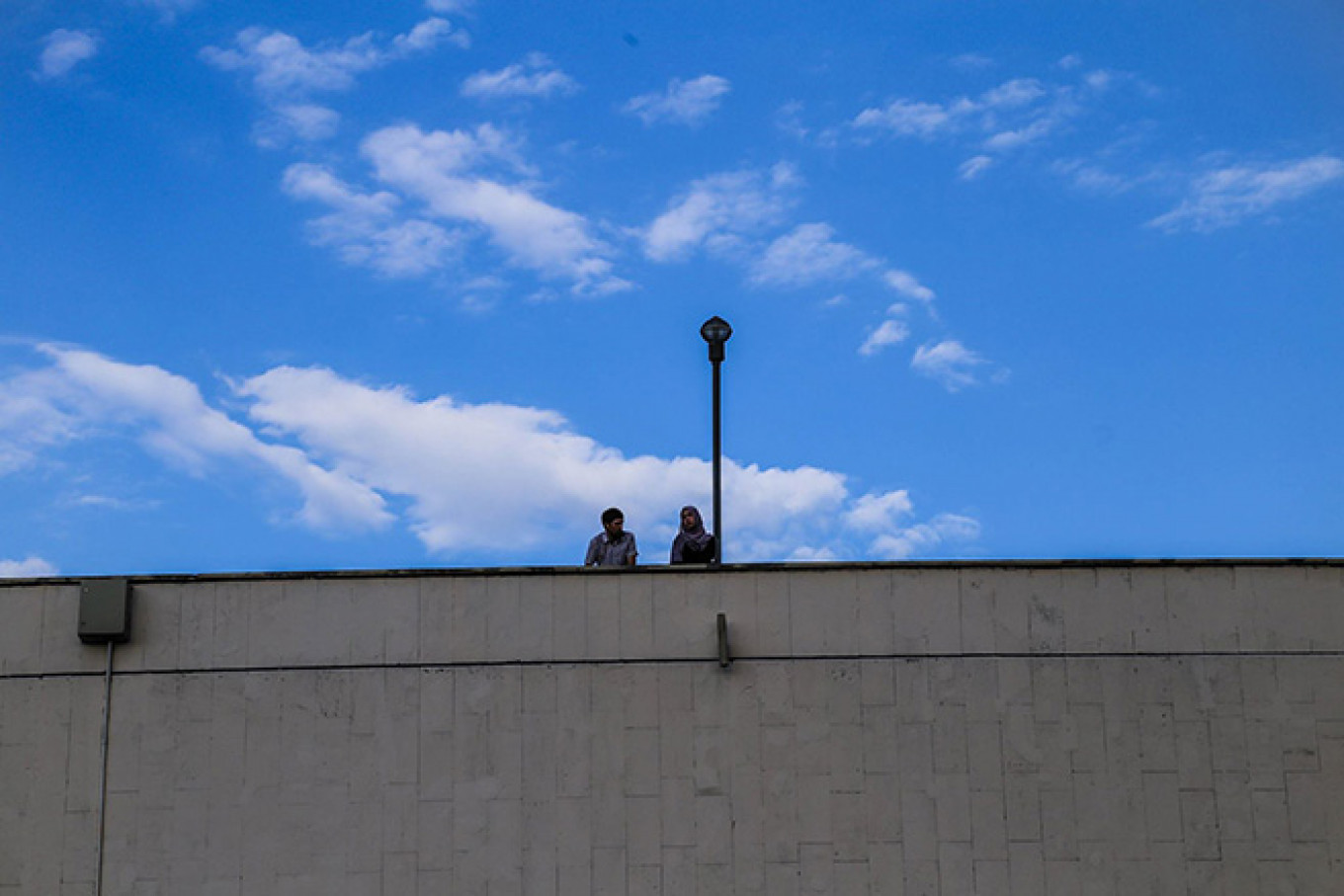
An Immigrant Land
Ruslan Volkov, director of Moscow's Fund to Support Islamic Culture, says Muscovites do not want more mosques because they see them as "markets" for Central Asian migrants. "It is where people meet, exchange information and get jobs," he says. Volkov, who is of Tatar heritage, says that white Russians generally accept Tatar Muslims but not those from Central Asia or the Caucasus. "We fought with the Russians for centuries, we are united by blood," he says.
Malashenko thinks the antipathy toward Muslim migrants is only worsening. The latest generation of Central Asians coming to Moscow is different from those in the 1990s and the early 2000s. "These are not post-Soviet people anymore," says Malashenko.
Young Central Asians speak worse Russian than their parents and, having shed their Soviet past more successfully, are instinctively more religious. They are also more economically ambitious than their parents, he says, making them more of a threat for Muscovites, especially during an economic crisis.
Aisuk, a 49-year-old Tajik who declined to give his last name, says the climate of acceptance has deteriorated since he moved to Moscow in 1988. "In the 1990s, Russians would come to the mosque out of curiosity. Now the riot police blocks us off so they don't come anymore," he says. Aisuk claims police pick up men outside the mosque at random and take them back to the police station, asking for documents and, sometimes, bribes to get out. "There they go again," he says, as police cars circle around the mosque after Friday prayers. "They come with dogs, we already feel like dogs in their cages," he says, pointing at the railings installed around the mosque.
Aisuk is also unhappy with the running of Moscow's new Cathedral Mosque. "There are more cameras in there than in the Kremlin," he jokes, adding that CCTV is in operation even in the toilets. He thinks Russia's Muslim clerics have not done enough to lobby for the construction of more mosques in Moscow, saying they often function as a "business."
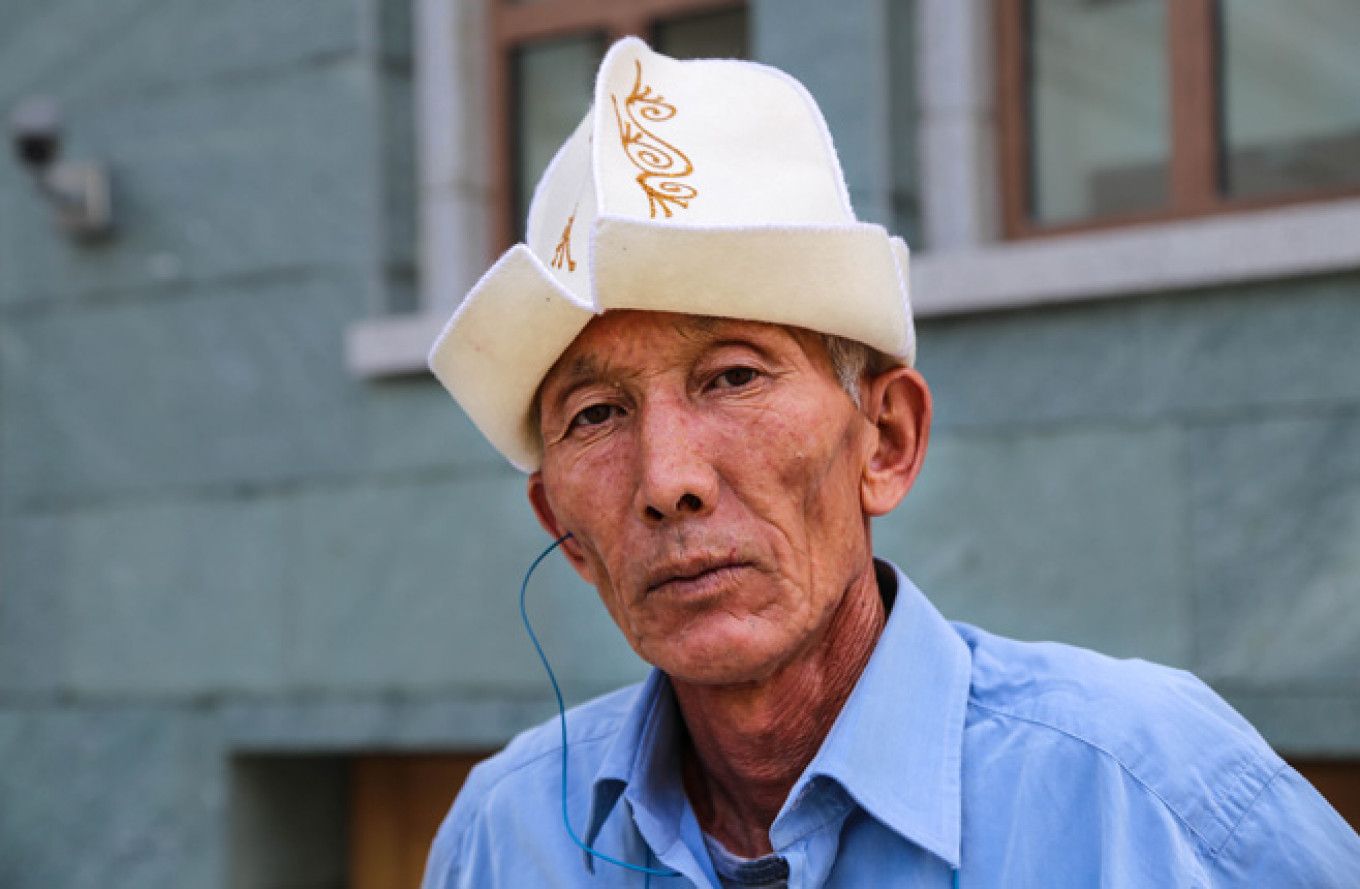
21st-Century Solutions
Since the fight to build new mosques has been lost, Moscow's Muslims are looking for alternative ways to solve their lack of worshipping space. One initiative sought to create outdoor mosques in the city's parks, but even that proved too much for the authorities.
Most recently, a Kazan-based entrepreneur crowdfunded a project to introduce mobile mosques in the city.
Airat Kasimov had already created an app called Halal Guide, which helps Muslims find charities and halal food in the Russian capital. He has now converted six trucks into mini-mosques with built-in kitchens. He hopes he will soon receive permission from Moscow's authorities for them to appear on city streets.
Kasimov says he came up with the idea while watching fellow Muslims pray outside in the cold. He plans for the mobile mosques to trot around Moscow's business centers, so that Muslim employees can find the time to pray without traveling across the city.
"If there are no mosques to go to, we will bring them to you," he says.
A Message from The Moscow Times:
Dear readers,
We are facing unprecedented challenges. Russia's Prosecutor General's Office has designated The Moscow Times as an "undesirable" organization, criminalizing our work and putting our staff at risk of prosecution. This follows our earlier unjust labeling as a "foreign agent."
These actions are direct attempts to silence independent journalism in Russia. The authorities claim our work "discredits the decisions of the Russian leadership." We see things differently: we strive to provide accurate, unbiased reporting on Russia.
We, the journalists of The Moscow Times, refuse to be silenced. But to continue our work, we need your help.
Your support, no matter how small, makes a world of difference. If you can, please support us monthly starting from just $2. It's quick to set up, and every contribution makes a significant impact.
By supporting The Moscow Times, you're defending open, independent journalism in the face of repression. Thank you for standing with us.
Remind me later.


